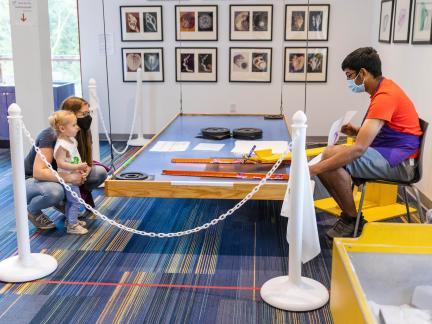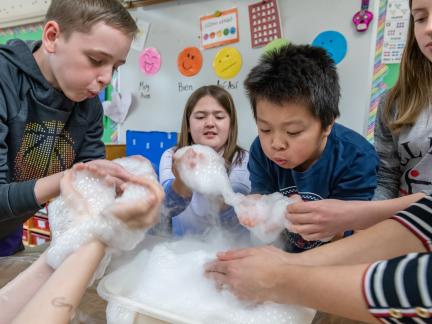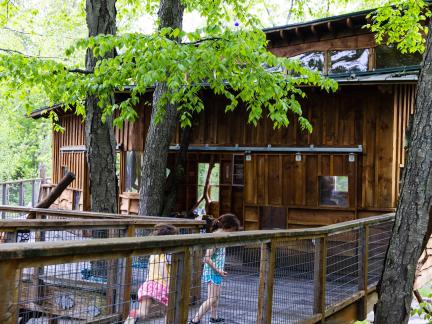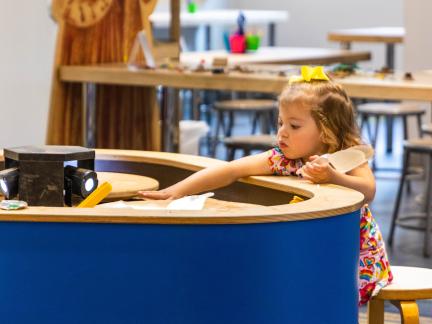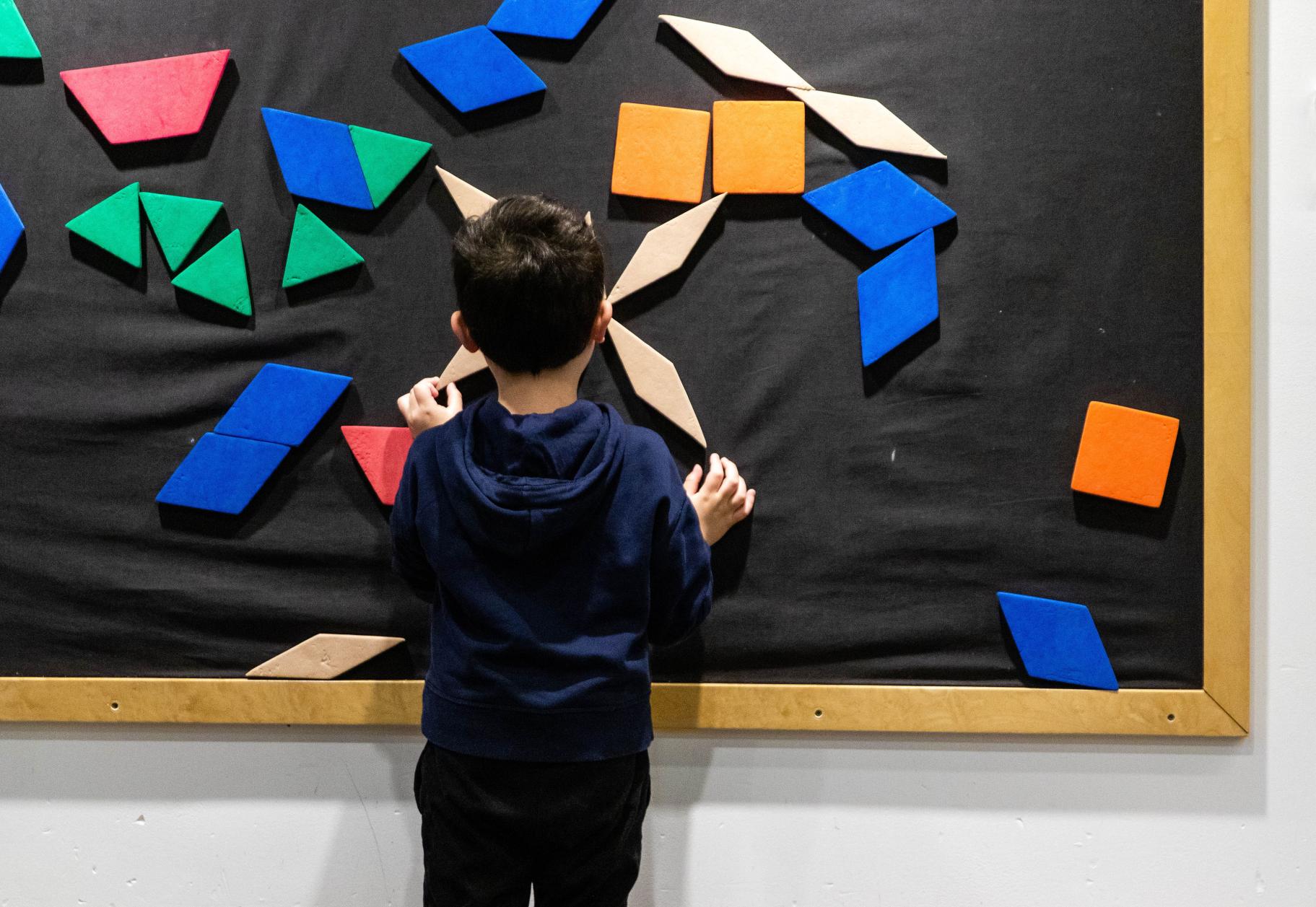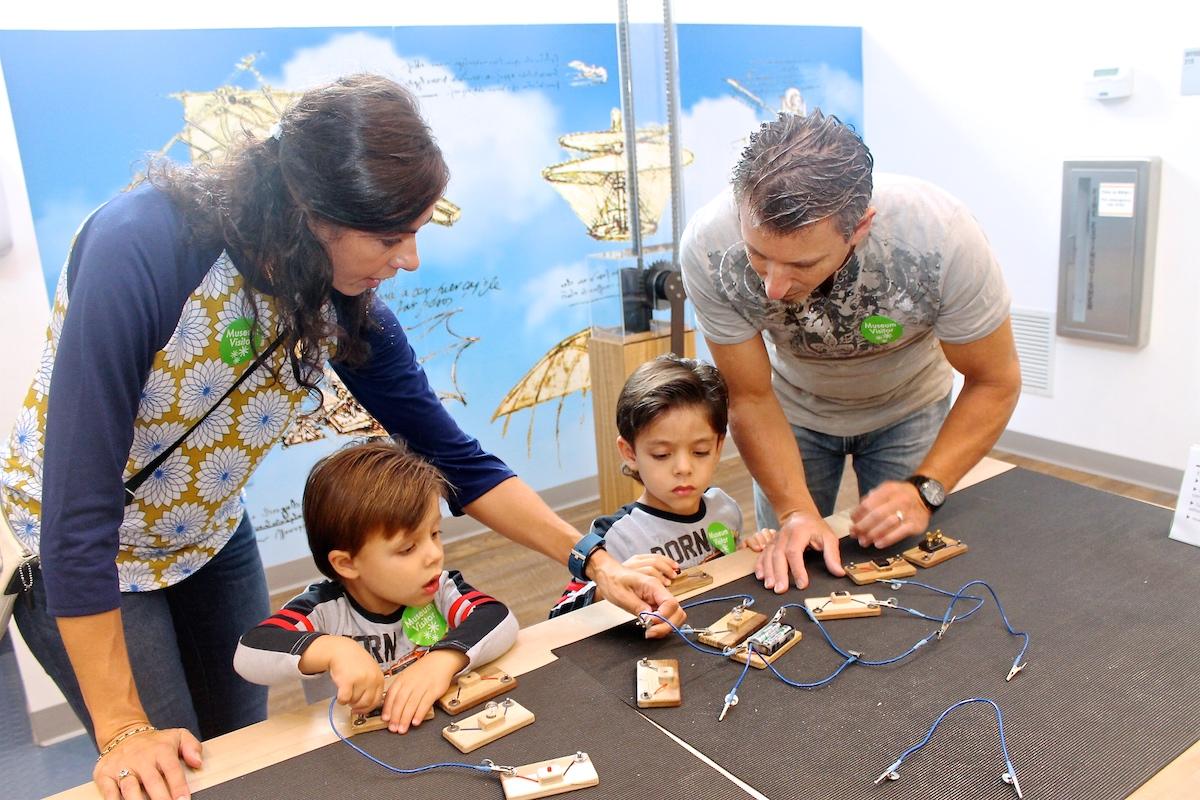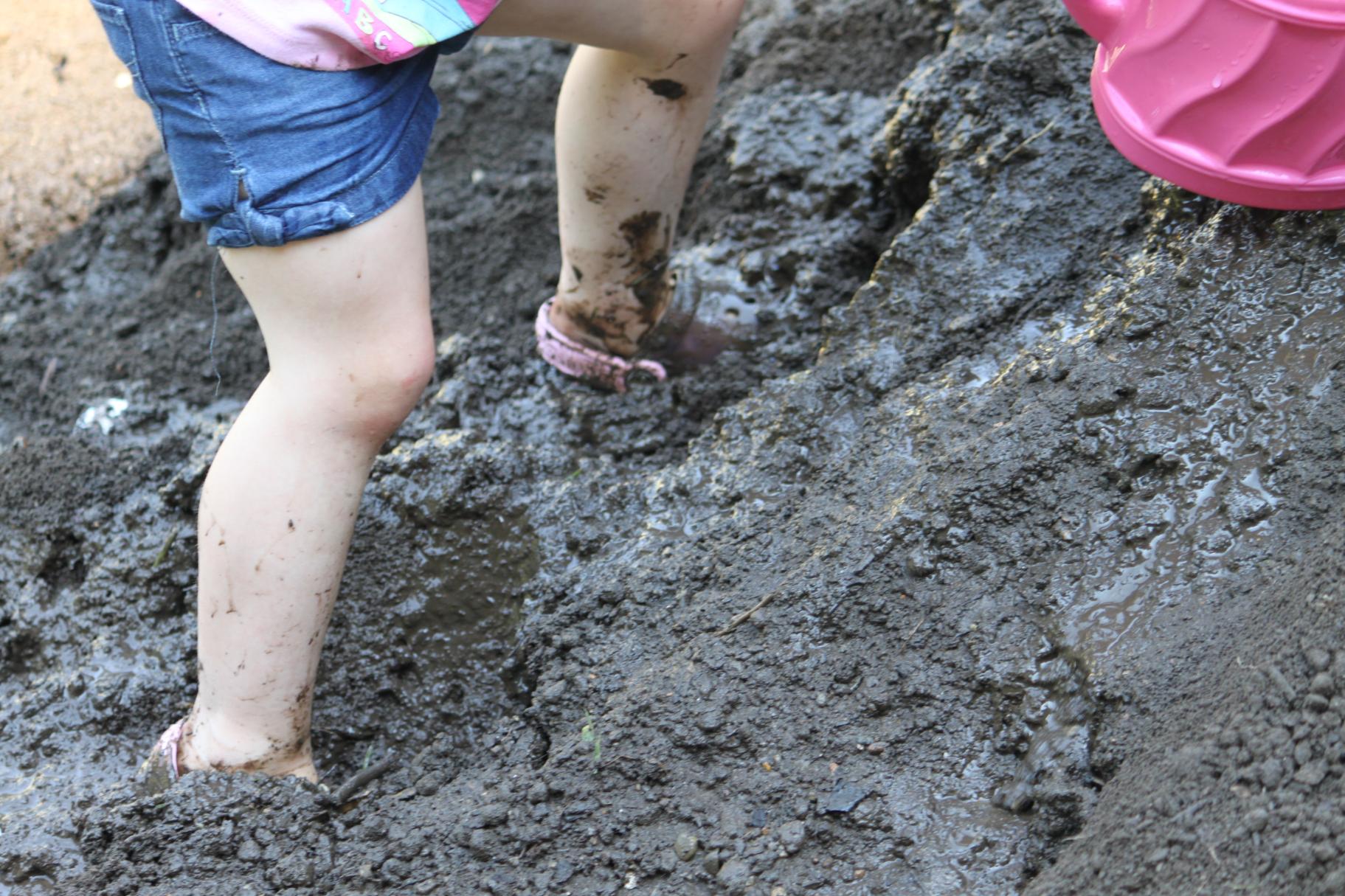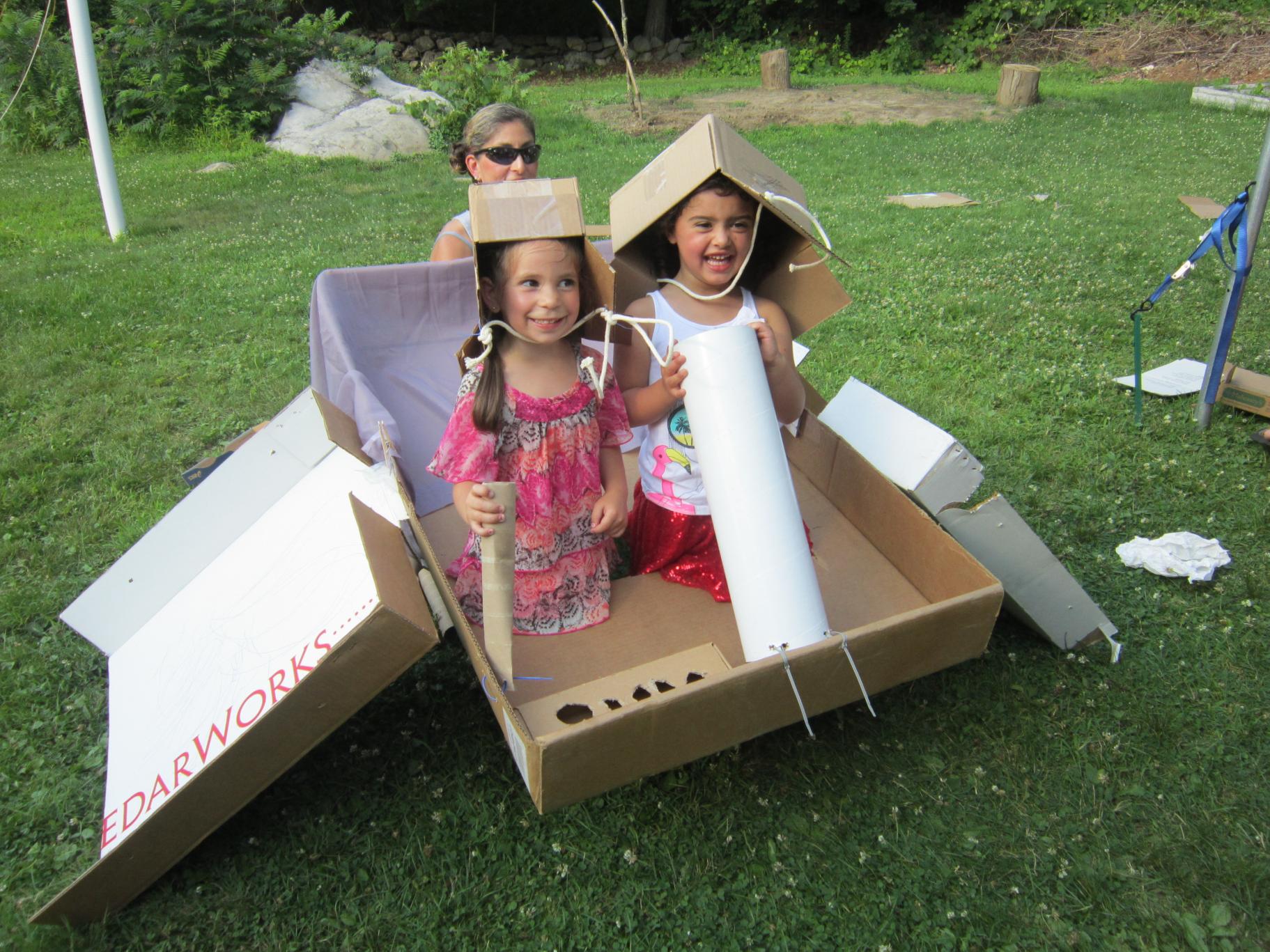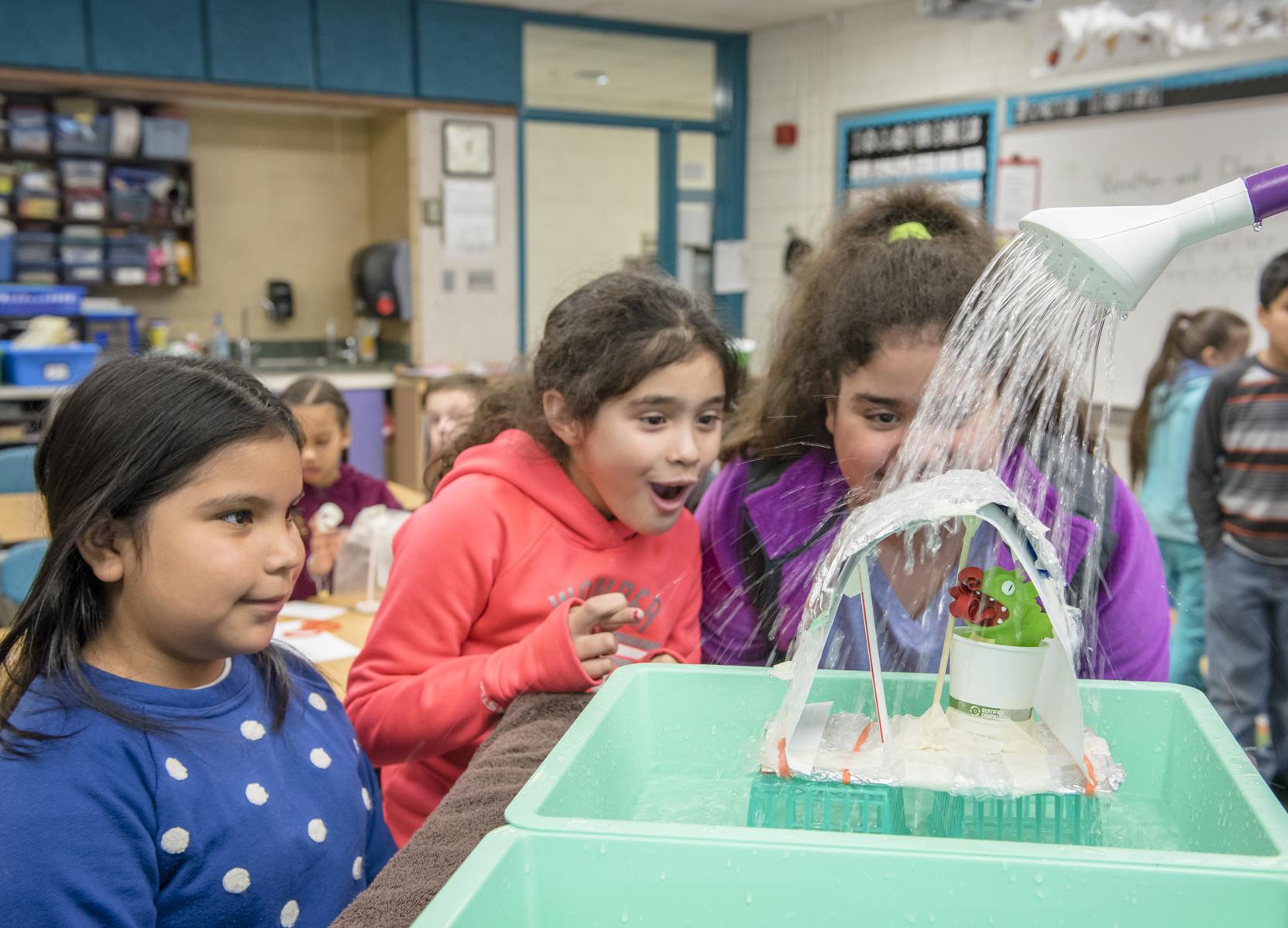Update from our CEO | October 2022 | Looking Ahead
Dear Friend of the Museum,
When I turned 40, I am sure I stopped, took stock of things, and thought about what was next...though admittedly, my memory may fail me on this. However I am very clear—and appreciative—of the fact that this year, as we have celebrated the Discovery Museum and our 40th anniversary, we have been able to both reflect and look forward with, as The Beatles would say, a little help from our friends.
Over the past two months, nearly 150 people joined us for four casual “Dinner Dialogues,” to bring perspective to our conversation about the future of childhood and how Discovery Museum should respond to the challenges and opportunities kids are facing.
The Alpha Generation
We kicked off these community conversations with Dr. Valora Washington, President & CEO of The CAYL Institute. Valora described the megatrends impacting the trajectory of the lives of children and families: living in smaller, less traditional, and evolving family structures; living in a more diverse community; technology immersion from a young age; being just one living generation among many; being globally connected; and likely redefining adulthood. These megatrends create both opportunities and challenges that we, the adults in children’s lives and caretakers of the institutions that support them, need to decide how to act upon.
Valora gave us a lot to chew on when she reflected that in the nascent days of early childhood research, we believed more than we knew: we believed that if we invested in programs for young kids and their families, it would make a difference. Now, several generations later, she said we know more than we are doing.
The Museum’s takeaway: act now to celebrate all families and all kids, and work to be adaptable and responsive to evolving needs, to do our best to prepare kids to be flexible learners in a rapidly changing world. It starts with simple things: giving each kid the chance to celebrate and strengthen their own family, in its many expressions.
Children and Nature
On a beautiful first evening of fall, David Sobel, trailblazing environmental educator, author, and Professor Emeritus at Antioch University, shared with us how important it is for kids to experience nature and the outdoors. Outside play is important for kids' physical and social-emotional health and performance in school, but also as a precursor to adult attitudes about the natural world. We also learned—or were reminded—that kids don’t get nearly as much outdoor time as they need, in part because of parents' attitudes about perceived risks.
David told us that, “kids need to be re-taught how to be outside.” So, the Museum’s commitment: make sure that outdoor physical and nature play is part of the Discovery Museum experience for all kids, giving kids the freedom to explore, safely, the world around them and inspiring them to be the environmental stewards of the future.
Empathy and Creativity
A marvelously enjoyable and inspirational evening was spent with Peter H. Reynolds, prolific writer, storyteller, and illustrator (The Dot, Ish, Sky Color), and Founder of FableVision and the Reynolds Center for Teaching, Learning, and Creativity. Peter reminded us that curiosity, discovery, and making mistakes are all a part of learning—and require courage. Peter posited that every kid has something amazing inside of them that should be shared. For some people it takes decades to come out or, because of fear, never does
We learned from Peter that, as adults, it is critically important that we fight our own inhibitions and model creativity, empathy, and kindness for kids—so that they, too, can be brave enough to share their ideas, their thoughts, their differences.
Peter set the direction for the Museum: be brave, be louder—in our encouragement of kids, in our own creativity, and in standing up for the kind of future we want kids to have. We at the Museum believe that providing the space, materials, encouragement, and support for open expression is a good place to start.
Science, the Environment, and Change
Derrick Z. Jackson, Pulitzer Prize finalist, former columnist for The Boston Globe and Newsday, and Union of Concerned Scientists Fellow wove some interconnected themes for an engaged dinner group in our final event. Derrick took us through the layered challenges of environmental justice, climate change, and racial inequity in STEM education. But he also pointed out positives: we can and have restored parts of the environment that had been destroyed—we can save and rebuild when we are determined to do it. And, there is wonderful, inspiring enthusiasm from young people to get involved and tackle some of our biggest challenges.
Derrick emphasized that to support change, we need to elevate and support those who can make it happen—including and especially the kids today who are going to be tomorrow’s problem solvers. He challenged us to lead the way, and we at the Museum are committed to doing so. We will continue our open-ended, try-and-discover approach to science because we know it is a good launching point for all kids that builds early STEM confidence and an energetic approach to problem-solving.
At each dinner, our guests’ insightful questions and informed suggestions made the evening a valuable resource for informing the Museum’s future. Our guests were very generous as well: the series raised more than $200,000 for the Museum’s sustainability and equity initiatives—essentially, all the ways we make visitation accessible and welcoming to as many people as possible.
Our sincere thanks go to the friends of the Museum who hosted tables, made ticket donations, and contributed additional donations after attending the dinners. We appreciate their support for our work on behalf of children and families and our role as a convener of important conversations. Every one of those gifts was matched one-to-one by The Manton Foundation, through a tremendous challenge grant that invested in the idea of bringing people together, in person, to engage with each other and topics worthy of our collective time and attention.
Today, October 26, is when we mark Discovery Museum’s official 40th birthday—the day the Children’s Discovery Museum first opened its doors—and with it we look forward to the next 40-year chapter in supporting the kids and families of our community. That work will happen, of course, with a little help from our friends.
As always, I welcome your feedback and suggestions at ngordon [at] discoveryacton.org (ngordon[at]discoveryacton[dot]org).
Happy 40th to us!
Neil
